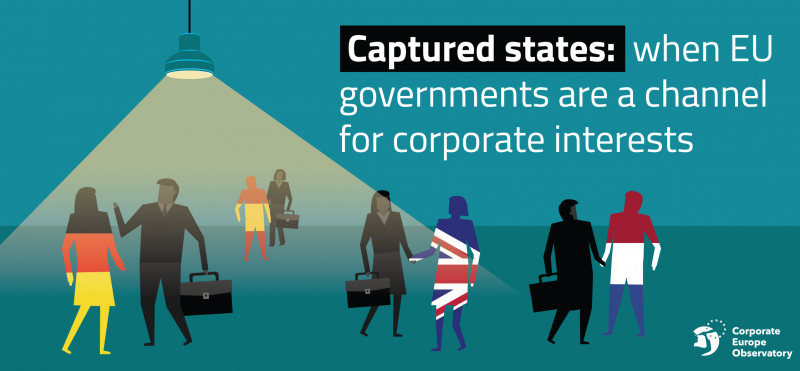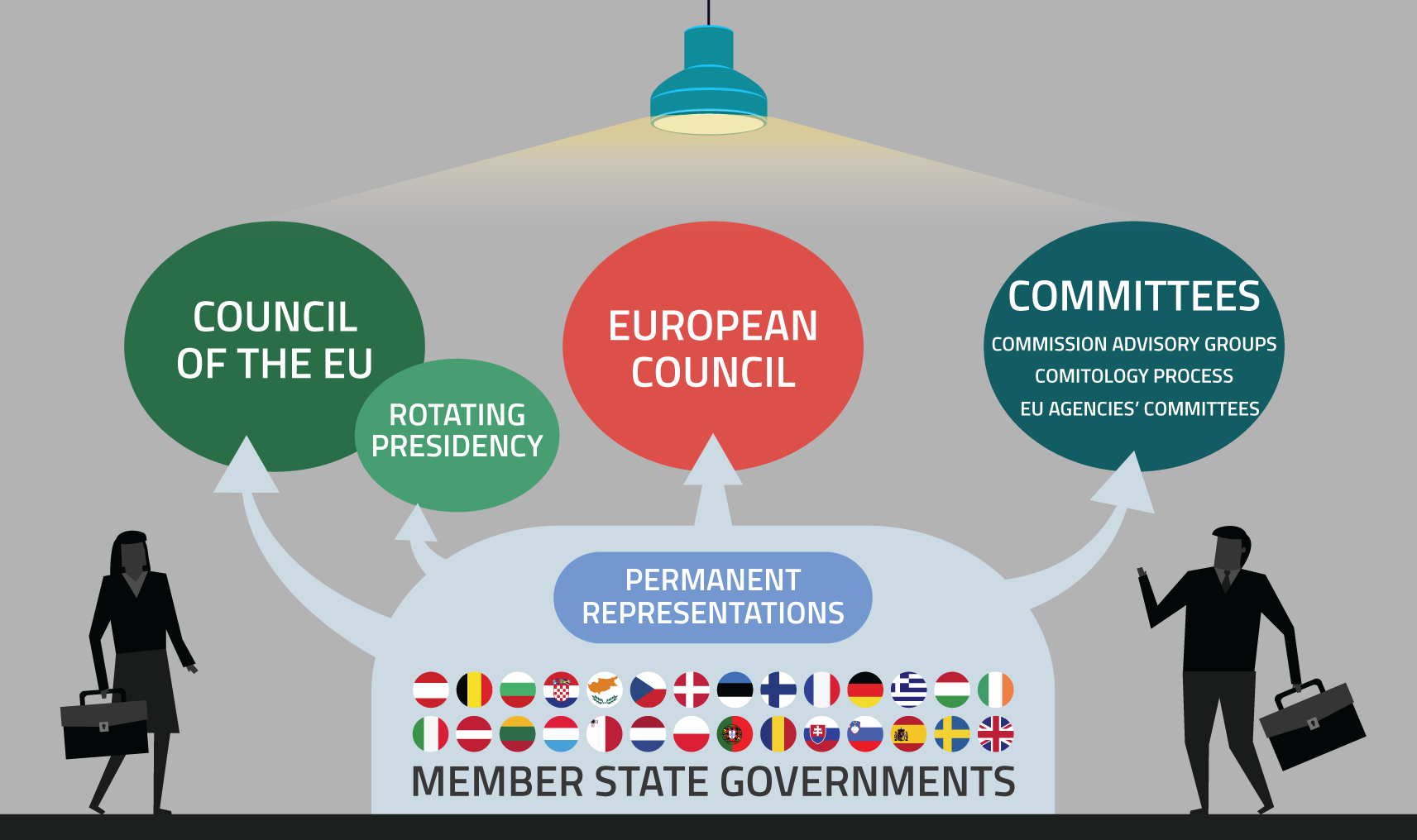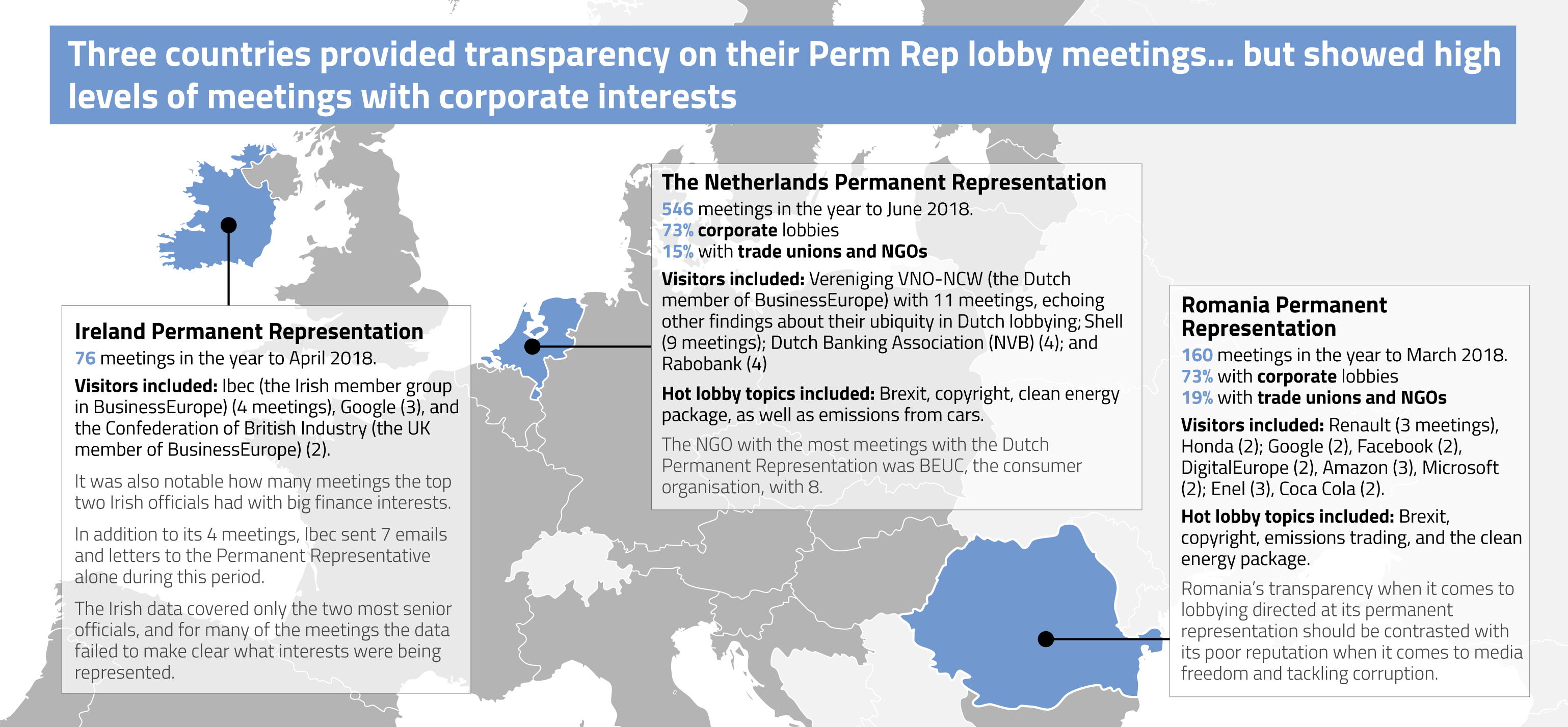
Captured states
When EU governments are a channel for corporate interests
Member states play a hugely important role in EU decision-making, but too often they act as middlemen for corporate interests. This new report combines case studies, original research, and analysis to illustrate the depth of the problem – and what you can do about it.
Download the full report. The summary briefing is available in English, English (with UK examples), Deutsch, Español, and Français. The data for permanent representations' lobby meetings is available here.
Corporate lobbies are actively influencing decision-making, via national ministers and officials, to ensure that EU laws and policies suit them. These corporate lobbies include famous national brands such as Volkswagen and Telefónica; iconic sectors like the finance industry in the City of London or the Polish coal industry; and high-spending EU trade associations such as BusinessEurope and CEFIC (the European Chemicals Industry Council). And whether it is on climate change, finance, chemicals, data privacy, or many other issues, when corporate interests win, the public interest loses out.

Many of the ways in which member states feed into EU decision-making are shrouded in secrecy and not commonly studied. Our new report “Captured states: when EU governments are a channel for corporate interests” breaks new ground by providing an overview of how member states act as a channel for corporate influence, whether it is in the Council of the European Union (where member states’ ministers and officials input into EU law-making and policy-making); the European Council (where the heads of government of EU nations make pronouncements on the EU’s direction of travel); or the EU’s committee structure (which provide member states with key seats at the table to discuss the technical and scientific detail of EU laws).

This report alerts civil society and decision-makers to the threat that corporate lobbies, influencing member states, have on EU decision-making. To start to reverse this, action will be needed by governments, national and regional parliaments, and the EU institutions. In particular, we urgently need new models for citizens to both find out more about, and have a say on, the EU matters with which member states are tasked with deciding. Check out the ‘What you can do’ section of the report for immediate steps and tips on how to investigate the EU’s ‘Captured states’.
Download the full report. The summary briefing is available in English, English (with UK examples), Deutsch, Español, and Français. The data for permanent representations' lobby meetings is available here.
